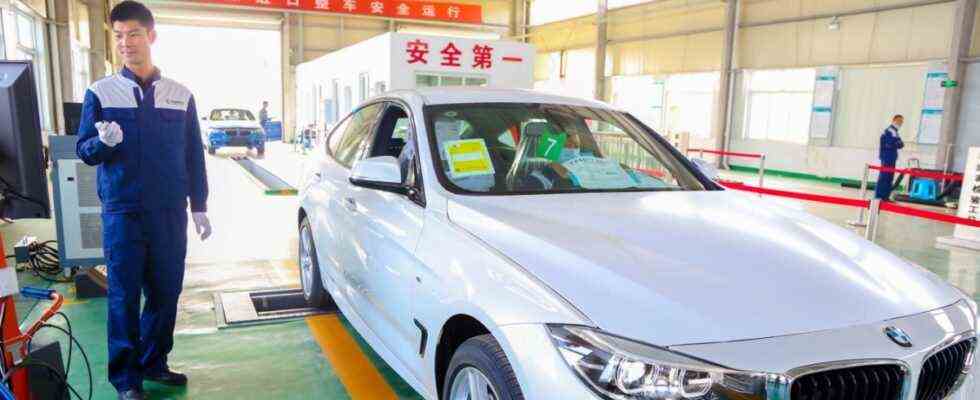From the beginning it was a kind of mutual business. What managers like to call a win-win situation. The German manufacturers built and sold their limousines in China and made a very decent income from them for years. When a billion-dollar population switches from bicycles and rickshaws to Audi, BMW and Daimler, something like this can trigger incredible growth spurts in Ingolstadt and elsewhere. In return, the Germans had to work with local Chinese companies that took this opportunity to learn a lot about car manufacturing Made in Germany learned. But what were a few copies compared to the billions in profits that could be made in return? Win win.
Over time, the carmaker’s suppliers also settled in China, companies such as the roof outfitter Webasto from Stockdorf near Munich. 20 years after entering China, the supplier now has eleven locations in the country and generates one billion euros in sales here, 40 percent of the business. Webasto without China? Hardly imaginable. Suppliers like the Stockdorf-based company have long been just as dependent on the Chinese market as their customers in Wolfsburg and Stuttgart.
If 40 percent of the total group profit and more come from a national company based in Beijing, it is not only economically dangerous. The dependencies can also lead to major political upheavals.
Uyghurs, Hong Kong, Taiwan – that wasn’t an issue for a long time
In all these years, however, politics has rarely or never been discussed. Xinjiang, the oppression of the Uyghurs, Hong Kong, Taiwan? Not an issue, why should I? Business was constantly dragging share prices up with it, and Berlin was ruled by an automobile chancellor who often traveled to China because she hoped that enough trade would eventually change something. The school of thought of the “trade through change” followers may have worked several times. Unfortunately she doesn’t have it here.
For some time now, there have been good reasons for German industry to free itself from China and to spread its business more widely. Instead, however, the dependency continues to grow instead of being turned back.
Two days, two messages. The first: The Beijing car company BAIC is more influential at Daimler than previously known, it now holds ten percent of the shares in the Stuttgart manufacturer, plus the shares of the major Chinese investor Geely – the Dax group is now almost 20 percent in Chinese hands. The second piece of news: BMW plans to soon build its large X5 city SUV not only in Spartanburg, South Carolina, but also in China. This can certainly be understood as a clear signal: We build where we can sell well at good prices – and we are not being slowed down by American-Chinese tensions or new customs barriers.
The old logic that production follows the markets still applies
If the USA and China continue to decouple, then it will simply be redistributed.
It is basically still the old logic of the 90s and 2000s that production has to follow the markets. Unfortunately, however, the world has become a little more complicated since then. The question is: How do the strategic planners in Stockdorf, Wolfsburg, Munich or Stuttgart actually want to react if China should actually invade the island nation of Taiwan? Then still go Business as usual? Joint ventures, joint projects with partners who, in case of doubt, are even controlled by the state, like BAIC? And what if more details about forced labor in labor camps for Uyghurs emerge? It is time to reassess things and become less dependent on China. Even if this is initially at the expense of the profit margin.
The fact that the new foreign minister, Annalena Baerbock, is now taking a new, more critical course, has definitely been noted in Beijing. Interesting about this is the very subtle hint from the Chinese embassy in Berlin: It is hoped that “individual German politicians will look at China and the Sino-German relations objectively and holistically”. Holistic view – of course you can also understand it this way: There are, dear Minister, not only foreign policy, there are also economic relationships. For example, there is an auto industry that makes a lot of its money in China. And which would not be what it is without China.

